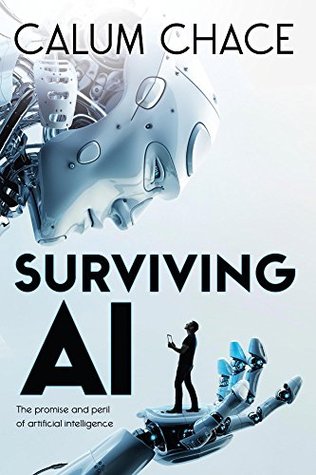More on this book
Kindle Notes & Highlights
by
Calum Chace
Read between
April 27, 2019 - March 24, 2020
Turing is also famous for inventing a test for artificial consciousness called the Turing Test, in which a machine proves that it is conscious by rendering a panel of human judges unable to determine that it is not. Which is essentially the test that we humans apply to each other.
It is said that 90% of all the data in existence was created in the last two years.[xii]
(For what are robots, but the peripherals of AI systems, just as mouses and keyboards are the peripherals of PCs?)
The world-wide web has given us something like omniscience, and virtual reality looks set to give us something like omnipresence. Perhaps all we need now is a technology to give us something like omnipotence.
the Flynn Effect describes the finding that IQ levels are increasing steadily each generation,[clxxix] which should not be surprising when you consider the general trends toward less smoking, less drinking, better central heating, better food and better healthcare. And the fact that we are continually learning more about what works in education and what does not.
A human brain contains around 85 billion neurons (brain cells) and each neuron may have a thousand connections to other neurons. Imagine you could give every inhabitant of New York City a thousand pieces of string and tell them to hand the other end of each piece of string to a thousand other inhabitants, and have each piece of string send two hundred signals per second. Now multiply the city by a factor of ten thousand. That is a model of a human brain. It is often said to be the most complicated thing that we know of in the whole universe.


